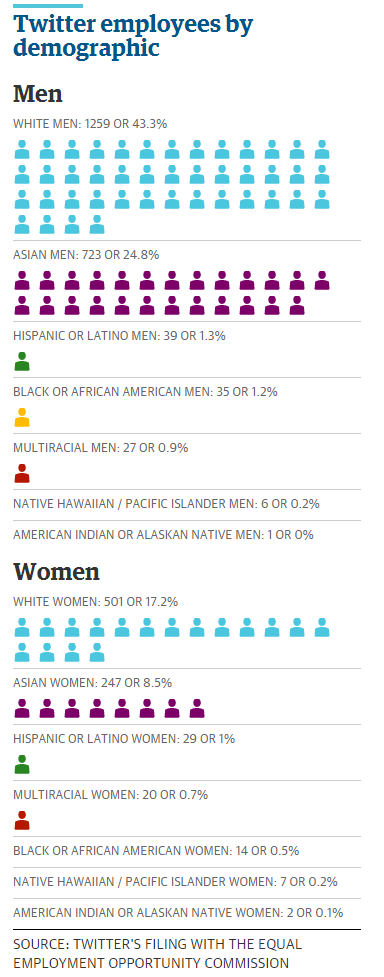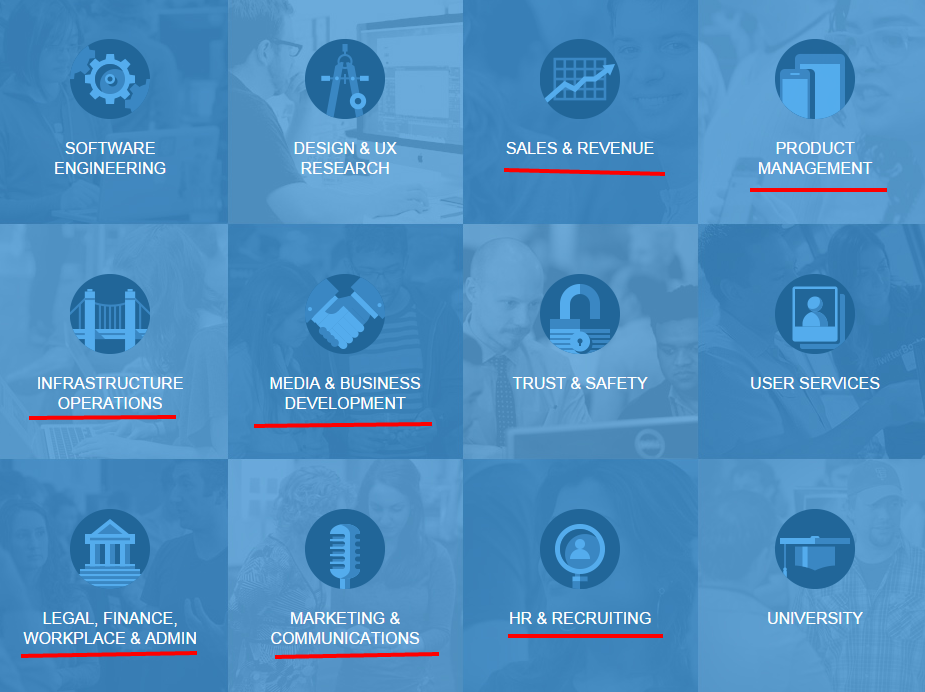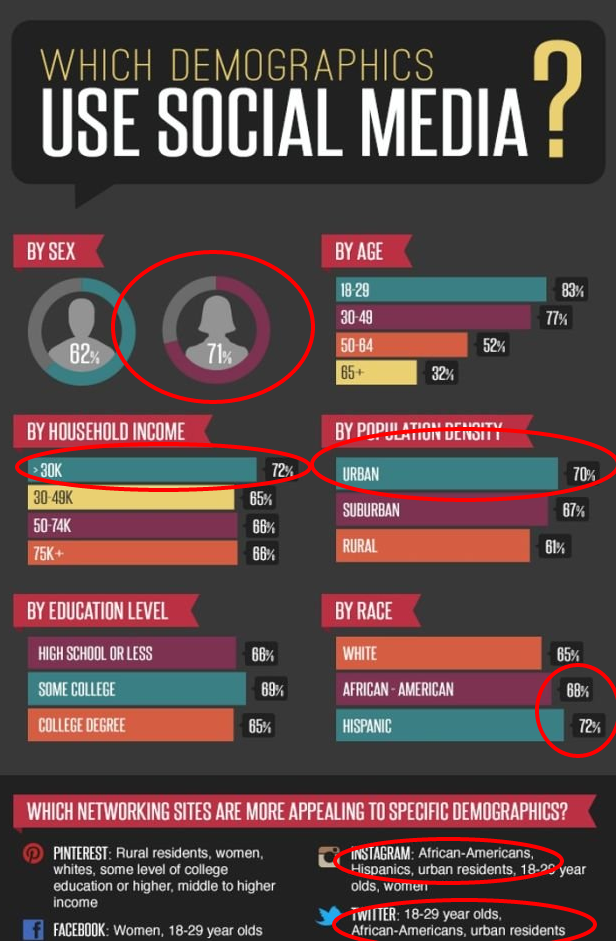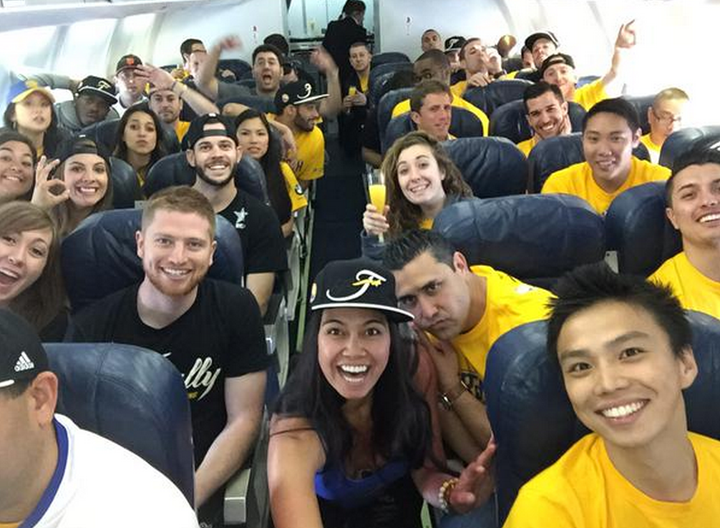So here’s the deal: Twitter released its EEO report showing that out of close to 3,000 employees in America, it has only 49 black ones.
Many outlets have reported on this news.
I don’t really want to rehash all I wrote when Facebook came out with its own EEO report which revealed a similar yet unsurprising result.
It’s getting exhausting at this point making the same argument for the value of diversity to a community and culture reluctant to recognize its value, from a strictly business perspective, if not for the social optics.
And by gosh, each time there is a story about this, I can predict the responses I will see in the comment sections to articles (most made mainly by white and Asian or Asian-American men). They are recycled versions of one of these five:
1. Tech companies pick the most qualified always and if there aren’t many blacks and Hispanics, that means obviously those minorities aren’t qualified (and/or have poor work ethic, aren’t educated, etc)
2. The Tech industry operates as a meritocracy solely.
3. Minorities don’t have computer science and/or coding skills thus disqualifying them from work in the tech industry.
4. Well Asians are over-represented and they are a minority so there is no problem.
5. The NBA is majority black so does that mean we have to force team owners to draft white players?
At this point, these responses are not only predictable but laughable…
Oh and they reflect a high level of whining (which, by the way, is what anyone who dares to demand equity, equality or unbiased treatment is usually accused of doing by merely speaking up).
Said complaining is usually spewed by privileged members whose race and gender are aptly represented thus they are blind to see what could possibly be wrong with the status quo.
The knee-jerk reaction is to close the mind and eyes to rational thinking and consideration to any other alternative explanation, suggestion or solution.
For the sake of the exercise once more, let’s discuss these five lame excuses.
1. and 2. On only Best Hired and Tech being a Pure Meritocracy. *Yawn*:
Studies have shown unconscious bias exists. It is a real thing. Facebook has admitted it may impact hiring managers’ decision-making and consequently has launched efforts to train them how to recognize it and respond to it, appropriately.
Google the same. I really dig its model and attempts.
Twitter’s VP of Diversity and Inclusion Janet Van Huyesse made a similar statement about the value of diversity that Facebook CEO Mark Zuckerberg made last year as well:
“It makes good business sense that Twitter employees are representative of the vast and varied backgrounds of our users around the world. We also know that it makes good business sense to be more diverse as a workforce – research shows that more diverse teams make better decisions, and companies with women in leadership roles produce better financial results. But we want to be more than a good business; we want to be a business that we are proud of.”
The long and short of it: People prefer those who they are comfortable with, live around, socialize with and work with already. When choosing between two candidates with equal qualifications, they will likely hire the one they relate to more. When you have a predominantly White company, you must admit that Blacks and Hispanics are going to end up on the short end of the stick. Come on. Let’s be honest.
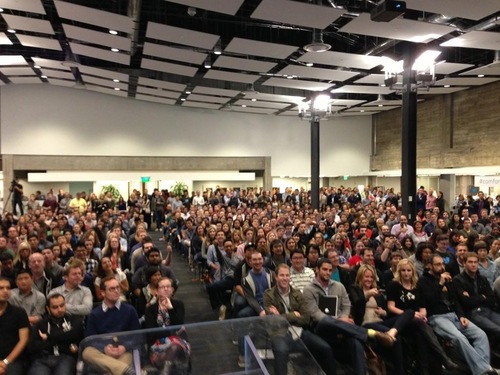
3. On lack of Minorities w/Tech degrees or Coding skills. Le Sigh. Really?
Put aside the fact black and Hispanic students graduate annually in large numbers with the requisite degree and skills (There are 106 HBCUs in America, many of which have CompSci departments and offer degrees in that major.)
Twitter and most of these large companies have a sizeable amount of non-tech positions that they manage to fill at least half with white women. So the excuse about coding goes down the drain there, even if it could be used to explain the numbers for tech jobs.
Most of the users of Twitter from America and from around the World are people of color. I don’t know how anyone can deny the fact that there are a lot of ideas that may come from people from different cultural backgrounds that can help a business.
Who would possibly think only one racial group, mainly of people from the same or similar culture, is capable of serving and providing creative and innovative ideas for all the peoples and cultures?
Diversity is not about Political Correctness and it isn’t a four letter word. There is real business-value to mixing up your workforce.
Anyone who doesn’t get that is purposefully ignorant or dense.
4. On Asians being aptly represented: Just Don’t .
We all know the concern is over two racial groups: Blacks and Hispanics, and women.
Why do they matter?
Both racial groups over-index, compared to their proportion in the population, in their use of Twitter and social media, generally and they represent a good bulk of their users.
Women overindex in social media as well.
See this infographic from Yahoo! News:
Twitter and other social media companies rely on women, Blacks and Hispanics’ numbers when courting advertising revenue. They value these groups as consumers but not enough to hire them…not even to answer the phone or clean the toilets because…check the numbers there too.
5. On the NBA straw-man argument. Oh boy!
First, the NBA has limited positions for players on each team.
Second, you best believe non-blacks are aptly represented among NBA Team owners, General Managers, Assistant General Managers, Coaches, Sales Team leaders, Marketing, Advertising, Media Relations, Promotions, Graphic Designers, Team Radio and TV crews, On-Air Talent, Producers, Technicians, Guest Relations and Suite Services operators.
For example, check out Jet Set Times’ image from last month of Golden State Warrior employees being flown to the finals:
Nope. The NBA doesn’t have a Diversity Problem.
Big Tech does.
Tech companies have hundreds and even thousands of positions, worldwide and many of them do not require special skills (whether to dunk a basket or to code).
Yet, despite this fact, they still don’t hire non-minorities (except Asians) and virtually no black women.
It’s uncanny and can only be explained by the fact the culture prefers to be inclusive of those who fit into it comfortably, and everyone else can see themselves out the door and never be called back for a final interview.
It’s not that complicated to diagnose, but it will take the usual apologists to take their heads out of the sand and actually digest the reality of the situation.
As I said in my post about Facebook:
Those who do not look like they belong (based on superficial factors such as their race and skin color) come in with the burden of having to prove they do.
Those who do look like they belong have an automatic check mark the former group doesn’t get.
This means the sole meritocracy position is bunk.
The former groups are proven unqualified to fit in until they prove otherwise and the latter are deemed qualified to fit in until proven otherwise.
All of it this is not based on coding skill or actual work done but rather superficial things that have nothing to do with merit but rather perceptions that are based on stereotypes.
Homework: Here is the Required Viewing
I really enjoyed this Google Ventures video on Unconscious Bias presented by Dr. Brian Welle, Google’s Director of People Analytics. It is 1 hour long but worth the watch.
(h/t toSpaceKatGal on Twitter for this find).
I really appreciated the section about resumes and black names starting at 18:30.
People can’t get hired when their name blocks them from even getting interviewed.
I also appreciated the microagression portion of Welle’s talk about preferring people and interacting more with people who are like ourselves starting at 33:30. It’s perfect and speaks to all I’ve written on this topic. And Welle shows data on why workers are hampered from a social networking and career advancement perspective by not crossing comfort barriers.
Oh I also like the part in the end around the 1 hour mark when in response to a question from the audience, Welle shares the story of the Asian American coder who didn’t think he was specially skilled but who had many doors opened to him simply because he fit the stereotype. That same coder wouldn’t benefit from any stereotype if he were in Harvard Business School where the perceived “type” is a tall, attractive, white male. It speaks to the point about how your race and gender is an automatic and unearned boost for some.
We need more who work in Silicon Valley and tech, in general, to recognize these research-based realities.
And finally, I also like that Google is taking the approach that the onus is on the institutions, companies and HR companies to fix the problem not those who are disadvantaged by things like unconscious bias. Many tell Minorities and Women they need to do xy and z to get jobs in tech without addressing how the tech culture and companies within it need to do some work as well.
Jay Jay Ghatt is also editor at Techyaya.com, founder of the JayJayGhatt.com and JayJayGhatt.com where she teaches online creators how to navigate digital entrepreneurship and offers Do-It-For-You Blogging Service. She manages her lifestyle sites BellyitchBlog, Jenebaspeaks and JJBraids.com and is the founder of BlackWomenTech.com 200 Black Women in Tech On Twitter. Her biz podcast 10 Minute Podcast is available on iTunes and Player.fm. Follow her on Twitter at @Jenebaspeaks. Buy her templates over at her legal and business templates on Etsy shop!

